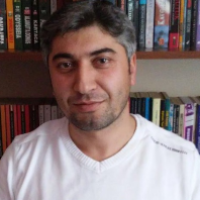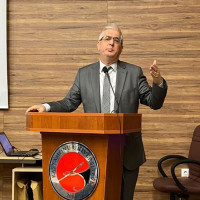Research Article
Book Review
Issue Reviewers





 Web
Web
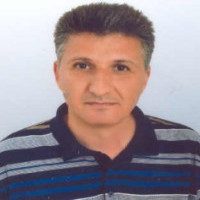

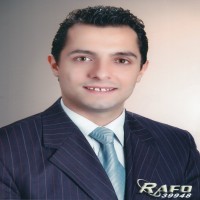
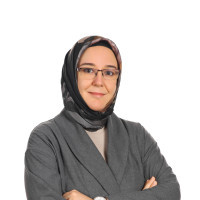

Adı Soyadı : Atilla DİLEKÇİ
Görevi yeri: Aksaray Üniversitesi Eğitim Fakültesi
İletişim : dilekciatilla@gmail.com

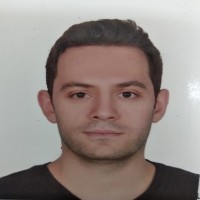
.
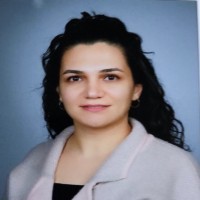
Doktora, Atatürk Üniversitesi, Ingiliz Dili Ve Edebiyatı Anabilim Dalı, 2018
Lisans, Karadeniz Teknik Üniversitesi, İngiliz Dili ve Edebiyatı Bölümü, 2011
Yüksek Lisans, Atatürk Üniversitesi, İngiliz Dili ve Edebiyatı Anabilim Dalı, 2013
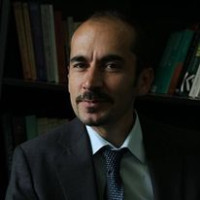
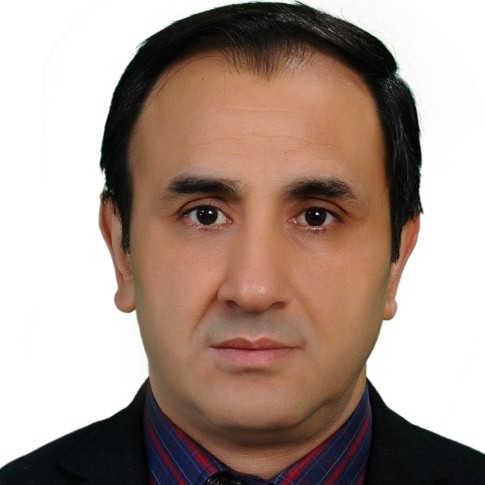
1966 yılında Hatay’ın İskenderun ilçesinde doğdu. İlk, orta ve lise öğrenimini aynı ilçede tamamladı. 1986 yılında girdiği Gazi Üniversitesi Gazi Eğitim Fakültesi Yabancı Diller Eğitimi Bölümü Arap Dili Eğitimi Anabilim Dalı’ndan 1990’da mezun oldu. Bir yıl sonra Milli Eğitim Bakanlığı’nın burslusu olarak Ürdün’de yüksek lisans eğitimine başladı. 1994 yılında Türkiye’ye döndü ve Gazi Üniversitesi Gazi Eğitim Fakültesi Yabancı Diller Bölümü Arap Dili Eğitimi Anabilim Dalı’nda okutman olarak göreve başladı. Ürdün Üniversitesinde başladığı yüksek lisans eğitimini 1998’de Gazi Üniversitesi Sosyal Bilimler Enstitüsü’nde “Mehcer Edebiyatı ve Arap Edebiyatına Etkisi” başlıklı tezle tamamladı. Ertesi yıl başladığı Doktora eğitimini 2004 yılında Gazi Üniversitesi Eğitim Bilimleri Enstitüsünde “Modern Arapçadaki Deyimlerin Dilbilimsel Açıdan İncelenmesi ve Yabancı Dil Öğretimindeki Yeri” başlıklı tezle tamamladı.
Lisans ve lisansüstü düzeyde verdiği dersler arasında “Okuma Becerileri”, “İleri Okuma Becerileri”, “Çocuklara Yabancı Dil Öğretimi”, “Atasözü ve Deyim İncelemesi”, “Dil Felsefesi ve Arap Dili”, “Psikodilbilim”, “Kuramsal Dilbilim” gibi dersler bulunmaktadır. Üç çocuk babası olup hâlen Gazi Üniversitesi Gazi Eğitim Fakültesi Yabancı Diller Eğitimi Bölümü Arap Dili Eğitimi Anabilim Dalı’nda öğretim üyesi (Prof. Dr.) olarak görevine devam etmektedir.
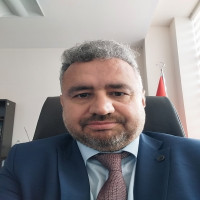





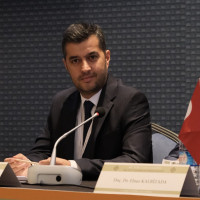

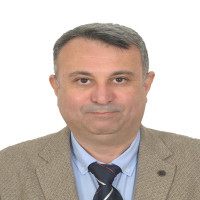
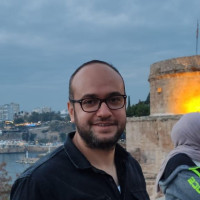
M. Emir Rüzgar is an associate professor working at Aksaray University’s (Türkiye) Faculty of Education where he specializes in curriculum theory and utilization of cinema films in educational milieus. He holds a PhD degree from University of Illinois at Urbana-Champaign in the field of Curriculum and Instruction.
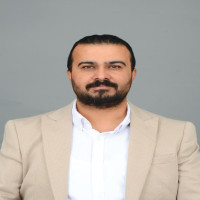
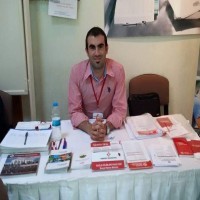
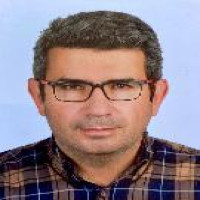
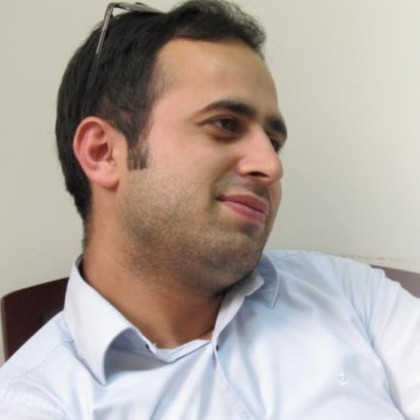
Dr. Fidan works as Associate Professor at the Departmant of Curriculum and Instruction (C&I) in Faculty of Education, Bartin University, Türkiye. He graduated from the Department of Computer Education & Instructional Technology (CEIT), Faculty of Education, Bursa Uludag University. He completed his Master’s degree in C&I at the Faculty of Education, Bolu Abant Izzet Baysal University. In 2018, he received his Ph.D. in C&I. He is a coordinator of the Learning and Teaching Development Coordinatorship and assistant director at Distance Education and Application and Research Centre in Bartin University. His research interests include teacher education, distance education, curriculum development, hidden curriculum, IT curriculum, online learning, instructional design, augmented reality, and educational technology.


Orta Doğu Teknik Üniversitesi Tarih Bölümü’nden mezun oldu. Yüksek lisansını Ankara Üniversitesi Dil ve Tarih-Coğrafya Fakültesi’nde tamamladı. Doktora eğitimini İstanbul Üniversitesi Sosyal Bilimler Enstitüsü’nde tamamladı. Türkiye, Rusya ve Gürcistan başta olmak üzere birçok farklı ülkede araştırma yaptı. Halen, Recep Tayyip Erdoğan Üniversitesi Fen-Edebiyat Fakültesi Tarih Bölümü’nde öğretim görevlisi olarak görev yapmaktadır. Rusya, Kafkasya ve Karadeniz tarihine dair çalışmaları bulunmaktadır.
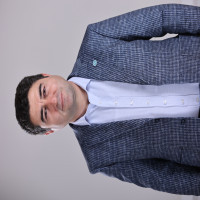



Özlem ZABİTGİL GÜLSEREN is a faculty in English Language Teaching (ELT) department at Sabahattin Zaim University. She completed her MA studies in Applied Linguistics / TESL in the USA, Penn State University. Her Ph.D. is in Adult Education, with a minor in Language and Literacy. Her research areas include language teaching methodologies, EFL / ELT materials development, multiple intelligences, language, literacy and identity studies.
Aim & Scope
The aim of Asya Studies is to make a modest contribution to the field of social sciences in order to develop all regions that will be the subject of scientific studies, especially the Asian geography, and to make qualified productions that can shed light on societies in scientific terms. Without ignoring the problem of institutionalization and continuity in the journals in the field of social sciences in Turkey, the most important goal of our journal, which has embarked on this path without ignoring the problem of institutionalization and continuity in the journals in the field of social sciences in Turkey, without forgetting the responsibility of publishing a qualified publication as a young academic community and the main thing is social progress, is to maintain a qualified publication line throughout its publication life and to take a place in a reliable and respected point in the field of social sciences. On this occasion, many studies in the fields of social sciences, philology and educational sciences related to Asian and European geography are evaluated in our journal.
Asya Studies is a journal founded in 2017 and publishes articles and book reviews in the field of social sciences. The journal publishes original research articles, reviews, research summaries and book reviews. In this context, our journal does not publish “Review and Case Report” articles.
Our journal is a peer-reviewed, international and free of charge journal published four times a year (March, June, September, December) electronically. Articles submitted to our journal are reviewed by spelling and language editors after editorial control and then sent to field referees. No fee is charged for the articles submitted to our journal, and no fee is charged for access to the articles published in our journal. Articles submitted to our journal are subjected to plagiarism scanning. In addition, our journal applies a waiver policy for authors from developing countries.
Our journal accepts articles in seven different languages: Turkish, English, German, Russian, French, Arabic and Persian. If deemed necessary and appropriate by the editorial board, articles in different languages can also be evaluated within the scope of our journal.
Author Guidelines
Asia Studies
2. Since the manuscripts sent to Asya Studies will enter the referee process, the author's name or author-identifying information should not be added in the full text file uploaded to the system. After the refereeing process of the article is completed, information about the author(s) will be requested to be added. If necessary, it can be added by the editors.
3. The works cited under the heading REFERENCES at the end of the study should be arranged in the order of the author's surname. APA 7 (American Psychological Association) system should be used in referencing. All references in the text should be included in the bibliography. Likewise, each source in the bibliography must also be cited in the text.
4. Studies with a similarity rate of more than 20% are not included in the publication process.
Page Layout
Manuscripts should be written in Microsoft Word program and page structures should be arranged as follows.
Paper Size: A4 Vertical
Top Edge Gap : 4 cm
Bottom Edge Gap: 3 cm
Left Margin: 3 cm
Right Margin: 3 cm
Font Type Times New Roman
Number of Article Pages (Maximum): 25
Font Size (main text): 10 point
Footnote Text: 8 pt.
Paragraph Spacing: 0 nk before - 0 nk after
Paragraph Indent: 1.25 cm
Line Spacing Tek (1)
Sample Reference Citation
Articles
-In article names, only the first letter of the first word should be capitalized (except for proper names, suffixes and conjunctions).-The journal name should be italicized. Except for conjunctions (if any) in the journal name, the first letter of each word should be capitalized.
-Volume number should be italicized. Journal Name, 4(12), 15-23.
-The issue number should be straight and in parentheses. Journal Name, 4(12), 15-23.
-If there is no volume number, it should be left blank. Journal Name, (12), 15-23.
-If there is no issue number, there should be no parenthesis. Journal Name, 4, 15-23.
-If the page number is unknown, it should be left blank. Journal Name, 4(12).
-If there is a Digital Object Identifier (DOI) number, it should be written after the page number. DOI should not be written at the beginning.
Single Authored Article
Sarıkaya, B. (2024). Determining the digital literacy levels of Turkish teachers. Van Yüzüncü Yıl University Journal of Faculty of Education, 21(1), 212-229. https://doi.org/10.33711/yyuefd.1415874
Citation: (Sarıkaya, 2024).
Article with Two Authors
Kavan, N., & Özdaş, F. (2022). Evaluation of teachers' views on the construction of democratic learning environment. Journal of Inonu University Faculty of Education, 23(3), 1598-1623. https://doi.org/10.17679/inuefd.1139458
Reference: (Kavan and Özdaş, 2022: 1618)
Articles with Three and Up to 20 Authors
Tarman, B., Acun, İ., & Yüksel, Z. (2010). Evaluation of theses in the field of social studies education. Gaziantep University Journal of Social Sciences, 9(3), 725-746.
Reference: (Tarman et al., 2010: 728)
Newspaper Article
Ergün, M., Akdağ, M., & Duruhan, K. (1989, October 4). Problems of the Turkish education system and some solution proposals. Dünya Newspaper.
Cited in: (Erdem et al., 1989)
Citing More Than One Work of the Author from the Same Year in the Bibliography:
Uysal, İ. N. (2018a). Dictionaries are richer and more functional with witnesses: Witnesses to the Turkish Dictionary. Journal of Turkish Language, CXIV(793), 9-46.
Uysal, İ. N. (2018b). Witnessing in lexicology and Salâh Birsel's contributions to Turkish dictionary as a witness. Journal of Gümüşhane University Institute of Social Sciences, 9(22), 109-118.
Submission-1: (Uysal, 2018a)
Submission-2: (Uysal, 2018b)
Books
-In book titles, only the first letter of the first word should be capitalized (except for proper names, suffixes and conjunctions).
-The book title should be written in italics. Other parts should be written plain.
-The name of the publishing house should be written.
-The city of publication should not be written.
-If there is a publication number, it should be written.
Single Authored Book
Bulut, S. (2018). Gümüşhane province and region dialects vocabulary. Gazi Bookstore.
Citation: (Bulut, 2018)
Book with Two Authors
Çağdaş, A., & Şahin, Z. S. (2002). Social and moral development in children and adolescents (1st edition). Nobel Publications.
Reference: (Çağdaş and Şahin, 2002: 46)
Book with Three and Up to 20 Authors
Işın, M. A., Tatlıcan, İ., & Işın, M. (1989). Sinop. Sinop Museum Publications.
Citation: (Işın et al., 1989)
Chapter in an Edited Book
Bulut, S. (2016). Bilge Kagan. In S. Maden (Ed.), Those who serve Turkish from past to present 1 (pp. 3-12). Nobel Scientific Works Publishing House.
Reference: (Bulut, 2016: 10)
Translation Book
Bolman, L., & Deal, T. (2008). Restructuring organizations (Trans.: A. Aypay and A. Tanrıöğen). Seçkin Publishing.
Citation: (Bolman and Deal, 2008)
Books in Two or More Volumes
Moran, B. (1995). A critical look at the Turkish novel (3rd volume). İletişim Publications.
Reference: (Moran, 1995: 103)
Encyclopedia
Akün, Ö. F. (1992). Divan literature. In Diyanet Foundation Encyclopedia of Islam (pp. 398-422). Turkey Religious Foundation.
Reference: (Akün, 1992: 401)
Author Unknown Book
The 1995 NEA Almanac of Highereducation. (1995). Washington DC: National education association.
Reference: (The 1995 NEA Almanac, 1995: 78)
Graduate Thesis
According to -APA, if theses and projects can be accessed from a database, an archive or a repository, they are considered published theses and should be cited accordingly. If there is no open access to the thesis or projects, it should be treated as an unpublished thesis. For detailed information, please see APA reference examples.
Kavan, N. (2020). The effect of technology-supported education on special education students' reading comprehension skills (Thesis No: 648374) [Master's Thesis, Siirt University]. National Thesis Center.
Reference: (Kavan, 2020: 32)
Declaration
Telli, B., Bulut, S., & Bulduk, T. B. (2014, April 03-04). Contributions to the compilation dictionary from Adıyaman dialect [Full text paper]. Adıyaman University Science, Culture and Art Symposium-I, Adıyaman, Turkey.
Reference: (Telli et al., 2014: 122)
Printed Dictionary
Turkish Language Association. (2005). Turkish dictionary. Turkish Language Association Publications.
Sending: (Turkish Language Association, 2005: 255).
Electronic Dictionary
Turkish Language Association. (no date). Türk Dil Kurumu dictionaries. https://sozluk.gov.tr/ Accessed on July 2, 2024.
Citation: (Turkish Language Association, no date)
A Report Prepared by the Organization
Turkish Statistical Institute. (2023). National education statistics. Turkish Statistical Institute Data. https://data.tuik.gov.tr/Bulten/Index?p=Ulusal-Egitim-Istatistikleri-2023-53444
Sending: (Turkish Statistical Institute, 2023)
Web Page
UNESCO. (2013). World heritage list. http://whc.unesco.org/en/list accessed on April 14, 2015.
Reference: (UNESCO, 2013)
For details beyond these points and examples of references, see the APA website link: https://apastyle.apa.org/style-grammar-guidelines/references/examples
Ethical Principles and Publication Policy
JOURNAL PUBLICATION POLICY
1. The publishing and editorial team of Asya Studies is committed to adhering to ethical standards at all stages of the publication process. The Editorial Board oversees the compliance of the articles in the journal with ethical principles. Manuscripts submitted to the journal must not have been previously published or submitted for publication in another journal. Other works of the authors of the duplication attempts detected by the Editorial Board will not be included in the journal. The publication of unpublished symposium proceedings is possible provided that the symposium participation is specified in the study.2. Ethics Committee Certificate is requested for studies with humans and animals.
3. The period between the date of receipt of the manuscript and the date of publication is not less than 45 days.
4. Studies accepted for publication cannot be withdrawn.
5. Articles submitted to the journal are checked by Turnitin, iThenticate or plagiarism.net similarity program at the beginning of the editorial process. Manuscripts with a similarity rate of more than 20% cannot be published. This rate should not be exceeded during the initial uploading of the article to the journal system and the referee + editor's acceptance for publication.
6. In articles with multiple authors, the contribution of each author to the article should be indicated.
7. In the articles sent for evaluation, information such as the author's name under the title, his/her title in the footnote, the institution where he/she works and the e-mail address where he/she can be reached should not be included. This information should be indicated on the Title Page Form. Author information of the articles accepted after the referee process is added during the publication process. For this reason, no information identifying the author(s) should be included in the full text file uploaded to the system. This is important in terms of allowing the referees who will review the article to move more easily and to apply ethical principles.
8. The articles included in the publication process are published in order by the editorial team according to their subject areas. The publication order is not changed for any reason.
9. Only one study by one author (even if he/she is a co-author of another study) can be published in one issue.
Under the heading of ethical rules, the following points must be complied with.
1. Separate ethics committee approval must be obtained for research in all disciplines, including social sciences, and for clinical and experimental human and animal studies that require ethics committee approval, and this approval must be stated and documented in the article.
2. Under this heading, information on ethical rules should be given under separate headings for referees, authors and editors.
3. Articles should include a statement that Research and Publication Ethics are complied with.
4. By referring to national and international standards, ethical principles should be stated under a separate heading in the journal and/or on the web page. For example, the recommendations of the International Committee of Medical Journal Editors (ICMJE) and the International Standards for Editors and Authors of the Committee on Publication Ethics (COPE) should be taken into consideration in scientific manuscripts submitted to journals.
5. In studies requiring ethics committee approval, information about the approval (name of the committee, date and document number) should be included in the method section and also on the first/last page of the article. In case reports, information on the signature of the informed consent form should be included in the article.
6. Copyright regulations must be respected for the intellectual and artistic works used.
The following ethical duties and responsibilities have been written in the light of the guidelines and policies prepared by the Committee on Publication Ethics (COPE).
The publication of an article in a peer-reviewed journal is a fundamental building block in the development of a coherent and respected knowledge network. It is a direct reflection of the quality of the work of the authors and the institutions that support them. Peer-reviewed articles support and embody the scientific method. It is therefore important to agree on expected standards of ethical behavior for all parties involved in the act of publishing: author, journal editor, referee and publisher.
1. Publication and authorship
Reference list, financial support;
No plagiarism and fraudulent data;
Not publishing the same research in more than one journal.
2. Author responsibilities
Studies with more than four authors are not accepted.
Only one work by an author can be published in an issue, regardless of whether it is individual or joint.
Authors are obliged to participate in the peer review process.
All authors must have contributed to the research.
A statement that all data in the manuscript are true and authentic must be provided.
All authors must ensure that errors are retracted or corrected.
3. Reviewers' evaluation/responsibility
The referee(s) must have at least a PhD degree (Dr. title).
Referee(s) working at the same institution as the author(s) cannot be sent an evaluation invitation. If such a situation is detected, the refereeing process will be canceled and new referee(s) will be added if the evaluation has been made.
Decisions must be objective.
Reviewers should not have any conflicts of interest related to the research, authors and/or research funders.
Reviewers should point to relevant published work that has not yet been cited.
Reviewed studies should be kept confidential.
4. Editorial responsibilities
Editors have full responsibility and authority to reject/accept a study.
Editors should not have any conflict of interest in relation to the studies they reject/accept. A manuscript should be accepted only when they are reasonably certain.
When errors are found, they should encourage the publication of a correction or withdrawal of the publication.
The anonymity of reviewers should be protected.
Plagiarism and fraudulent data should be avoided.
5. Publication ethics issues
Monitoring/protecting publishing ethics by the editorial board;
Setting guidelines for the retraction of manuscripts;
Maintaining the integrity of the academic record;
Preventing business needs from compromising intellectual and ethical standards;
Always be willing to publish corrections, clarifications, retractions and apologies when necessary.
INFORMATION ON ETHICS COMMITTEE APPROVAL:
QUESTIONS: Is ethics committee approval required for all articles?
Answer: No. In the criteria, it is stated as articles that “require Ethics Committee Permission”.
Research requiring Ethics Committee permission is as follows.
- All kinds of research conducted with qualitative or quantitative approaches that require data collection from participants using survey, interview, focus group study, observation, experiment, interview techniques
- Use of humans and animals (including materials/data) for experimental or other scientific purposes,
- Clinical trials in humans,
- Research on animals,
- Retrospective studies in accordance with the law on the protection of personal data,
Also;
- Stating that the “informed consent form” has been obtained in case presentations,
- Obtaining and indicating permission from the owners for the use of scales, questionnaires, photographs belonging to others,
- Indication of compliance with copyright regulations for the intellectual and artistic works used
QUESTION: Should retrospective Ethics Committee Permission be obtained for publications produced from studies and theses completed in previous years?
Before 2020, retrospective ethics committee permission is not required for articles that used research data, produced from master's / doctoral studies (must be specified in the article), applied for publication to the journal in the previous year, accepted but not yet published. (In addition, for studies with research data from before 2020 and submitted to the journal in 2020, an ethics report is not required from these articles, provided that the author states in the method section that the study data belongs to before 2020).
QUESTION: Are these rules of the TR Index restricting publications outside universities?
No, it is not. Non-university researchers can also apply to the Ethics Committees in their regions.
Also;
- For articles to be published in journals, it should be stated in the article whether ethics committee permission and/or legal/private permission is required. If it is necessary to obtain these permissions, it should be clearly presented from which institution, on which date and with which decision or number number the permission was obtained.
- If the study requires the use of human and animal subjects, it should be declared that the study was carried out in accordance with international declarations, guidelines, etc.
Sincerely.
Price Policy
Authors are not charged any fee for the publications of our journal.
![]() Works published in the journal Asian Studies are licensed under a Creative Commons Attribution 4.0 International License.
Works published in the journal Asian Studies are licensed under a Creative Commons Attribution 4.0 International License.




